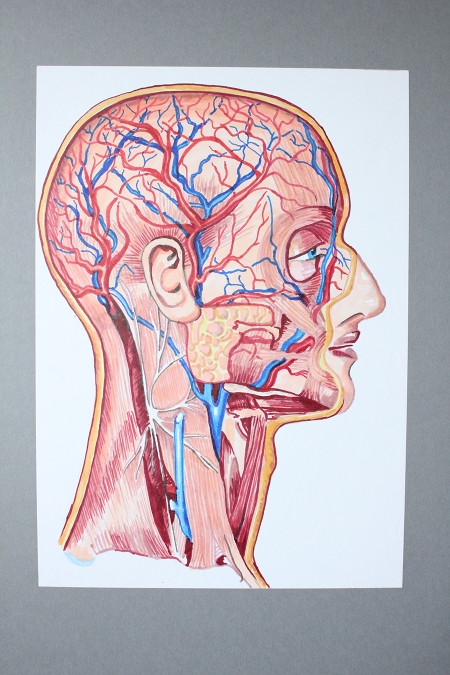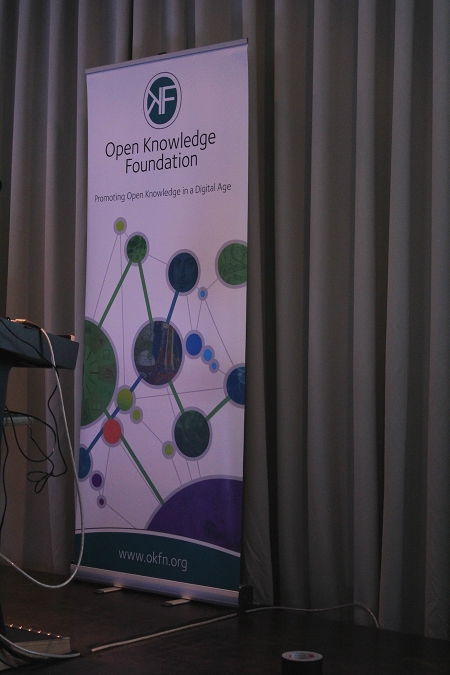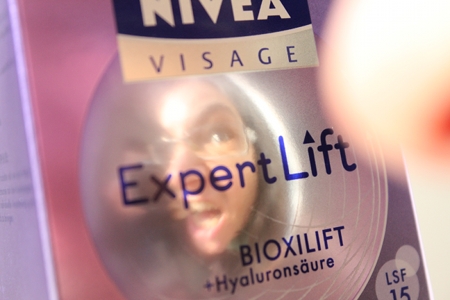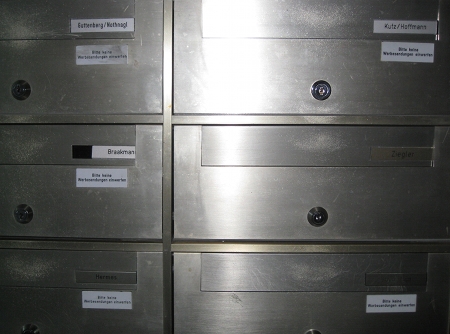Archive for the 'software' Category
Wednesday, August 17th, 2011

“HirniKoppic”, Copic Markers on paper, by artist “nettwürg” on the occasion of the rumors about the possibility of closing the Medizinhistorisches Museum (Berlin Medical Historical Museum) of the Charité.
Using Digital Holographic Microscopy (DHM) researchers of EPFL gathered quite some interesting images from inside the brain:
->Holograms Reveal Brain’s Inner Workings.
When do we get to see brain images from image imaginations? and when can others recognize these?
posted by nad | 3d, bio, communication, computer vision, nano, perception, software, visualization | No Comments »
Tuesday, July 19th, 2011
The Theseus program is a german research project (sofar funded for five years). It is kind of a bit on the side of the already mentioned Quaero project. Theseus is amongst others concerned with the development of aspects of the semantic web. Moreover it is especially concerned with technology in connection to business applications and services. So for example companies like antibodies-online may look out for unified descriptions of their products* etc. The Theseus project hosts the socalled TEXO lab, which offers now a prize for an app written in USDL (which seems to be some variant of WSDL, i.e. a metalanguage, which describes entities of web services). The website of the prize is in german, but thanks to google-translate (which still works for this site) one can get an easy translate of the site. This may enhance the global competition for a posh enterprise app.
*as a side remark: eventually this could also be useful for flutracking
posted by nad | communication, economy, procrastination, software, trips | No Comments »
Wednesday, July 6th, 2011

My talk at the open knowledge confence was well perceived, however on the other hand there were not so many participants listening to my talk. In general it seemed to me that games were not (yet) in the focus of the open knowledge community. That is tere were not so many talks involving games at the conference. Nevertheless there were enough issues of importance and the conference was fun.
The slides of my talk are currently too big for upload, so I only uploaded a newer version of the article.
update (130711): The slides are available now at slideshare.net:
Talk: “Testing new toy economies/political structures in MMOGs” at slideshare.net
posted by nad | art and design, berlin, climate, communication, economy, environment, games, math, physics, procrastination, software, trips | 4 Comments »
Wednesday, June 29th, 2011
posted by nad | art and design, berlin, communication, economy, environment, games, math, physics, software, visualization | No Comments »
Monday, June 20th, 2011

Photography: Pal Lindlund
This post is like the previous post a comment to the discussion about human-machine hybrids in the recently uploaded game-scheme article.
In a passage from human to a human-machine hybrid the tolerance towards body modifications plays an important role.
There was recently an interesting interview in the english newspaper “The Guardian” wether cosmetic surgery does help or damage people.
The interview however didn’t really touch the issue of how strongly plastic surgery (and other body modifications) is influenced by cultural predispositions (which are of course often influenced by economic considerations, but not only by these). In particular it also didn’t touch upon the question in how far the design of the human outer appearance via cosmetic surgery (especially its current boom) etc. might be seen as a step in a human-machine-hybrid transition.
posted by nad | bio, economy, environment, perception, procrastination, robotics, software, visualization | 6 Comments »
Thursday, May 26th, 2011
An upload of an updated version of the article draft “New economic schemes in games” is at the corresponding randform blogpost.
posted by nad | art and design, communication, economy, environment, games, math, perception, physics, procrastination, software, trips, visualization | No Comments »
Friday, March 25th, 2011
In the blogpost on the return of investments I proposed to use games for testing new economical scenarious. I currently try to make an article out of that.
In the draft I sofar have given an overview about games and roughly motivated why I think that it may be a good idea to introduce new economical schemes. In particular I talk about the limitations of this planet, design and in particular about something that I dubbed “recycling-run-away effect”.
Amongst others I also try to line out why I think that the nuclear waste problem may be a worse problem than the safety of reactors (see also the first post on Fukushima).
Comments are appreciated, here is the draft:
update (06072015) :
It currently looks as if an article format is rather not suited for the writings and findings made within the context of the game draft article. It is also still not clear wether this project will ever be finished and if in which form. You may though still find on and off some informations in this context, likethis blog post is an example.
update (06072011) : This blog post is now used as a referrer URL for the game scheme article, thus newer versions of the article and comments will be uploaded more or less regularily. Please note that this offer to our randform readers costs our private money. Since randform is currently purely financed by Tim Hoffmanns income as a math professor, we may eventually be forced to reduce or close this offer, depending on download rate, inflation, etc. Most of the content of the article is also spread on the Azimuth project like the section about the Game environment. The Azimuth updates are usually more current.
->version July 06, 2011
The most essential content article of the article was presented on July 1st at the open knowledge conference 2011 in Berlin:
Talk: “Testing new toy economies/political structures in MMOGs” at slideshare.net
older versions of the article:
->version May 25, 2011
->version april 26, 2011
-> New economical schemes in games, version march 25, 2011
posted by nad | architecture, art and design, bio, climate, communication, economy, environment, games, math, nano, perception, physics, procrastination, robotics, software, visualization | 4 Comments »
Thursday, March 3rd, 2011
 our little postbox in munich two years ago
our little postbox in munich two years ago
The last days there had been a big public discussion in Germany about scientific publishing. The reason for that discussion was that the former german minister for defense Karl-Theodor zu Guttenberg had included texts into his Ph. D. thesis, which were not by himself, but which were on the other hand not appropriately marked as a citation. The number of these plagiarized texts in his dissertation was so big that this “secretely pasting in” of texts by other authors had to be called systematic. As of march first, 2011 the site GuttenPlag had found plagiarized texts on 324 of 393 pages of his dissertation. After a longer process which included strong protests especially from the academic community, which included the revocation of his degree and a declaration of his doctoral advisor Peter Häberle Mr. Guttenberg finally resigned from his post as a minister for defense. Among others the declaration of his doctoral advisor Peter Häberle contained the sentence:
Die in der Promotionsschrift von Herrn zu Guttenberg entdeckten, mir unvorstellbaren Mängel sind schwerwiegend und nicht akzeptabel.
(translation without guarantee: The – to me unexplicable – found shortcomings in Mr. zu Guttenbergs dissertation are severe and not acceptable.)
The investigations into this case haven’t been finished, in particular the University of Bayreuth (which was in charge for the thesis) seems still to be investigating and e.g. checking wether the plagiarism was intentional fraud. There seems also to be the possibility of juridicial consequences (see e.g. here and here.)
In short the damage that had been done with this affair is quite big and thus a sensible question is “how could that happen and how could one prevent further cases like this?”
I hope that the future will bring more clearness into the case and will give an answer to the first question. Whatever the result will be it is already clear by now, that something went utterly wrong in how the dissertation was made and in how it was supervised.
In the randform post Alexandre Grothendieck writes a letter I had promised to speak about the proposal of a “closed pre-preprint section for the arxive for timestamping works” i.e. a kind of “safe” for work in progress. I think that such a section in an open access preprint archive could in particular be useful in the supervision process of a doctoral thesis and thus eventually help preventing similar cases as the above. It would also have other benefits. Let’s explain this.
(more…)
posted by nad | communication, math, physics, software | 2 Comments »
Friday, February 18th, 2011
Unfortunately I am again without my laptop. This time it seemed to me that the hard disk was anffected – just in case you wonder about the retarded blogging.
posted by nad | communication, software, trips | 1 Comment »



